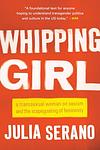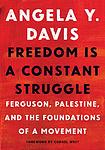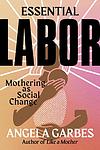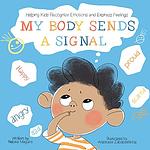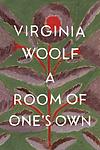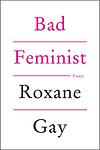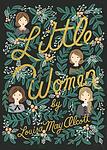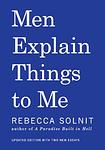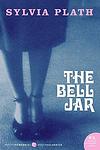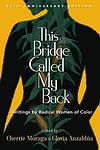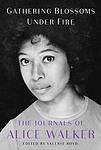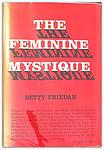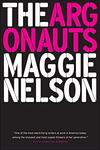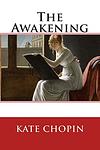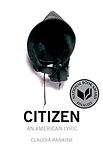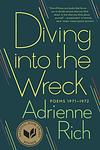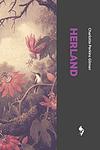40 Essential Feminist Books to Read for Women's History Month
This is one of the 284 lists we use to generate our main The Greatest Books list.
-
Hood Feminism by Mikki Kendall
This book provides a critical examination of mainstream feminism, highlighting how it often overlooks the needs and issues of marginalized women, particularly women of color and those from low-income communities. The author argues that feminism must address a wide range of basic survival issues such as food insecurity, access to quality education, safe neighborhoods, and healthcare that disproportionately affect marginalized populations. By sharing personal experiences and examining the intersection of race, class, and gender, the book calls for a more inclusive and intersectional feminist movement that advocates for the rights and needs of all women, not just a privileged few.
-
Whipping Girl by Julia Serano
In this thought-provoking work, the author explores the intersection of feminism and trans issues through a collection of personal essays. She delves into societal perceptions of femininity and critiques the way trans women are often marginalized, even within feminist circles. The book argues against the common conflation of gender and biological sex, and it challenges the stigma associated with femininity. It's a call to embrace diverse expressions of gender and to recognize the impact of transmisogyny on both trans individuals and society at large. The author's insights are grounded in her experiences as a trans woman, making it an influential contribution to gender studies and feminist discourse.
-
Freedom Is A Constant Struggle by Angela Davis
This book is a collection of essays, speeches, and interviews that delve into the interconnectedness of struggles against state violence and oppression throughout history and around the world. The author, a prominent activist and scholar, draws parallels between various movements for social justice, including the civil rights movement in the United States, the fight against apartheid in South Africa, and the Palestinian liberation struggle. She emphasizes the importance of collective action and the need for solidarity across different causes, arguing that the fight for freedom is an ongoing and universal endeavor that requires persistence and an understanding of the historical and global contexts of resistance.
-
Essential Labor by Angela Garbes
This book delves into the often overlooked but critical work of caregiving, examining its historical undervaluation and the way it underpins society. The author, drawing from personal experience and extensive research, argues for a reevaluation of labor hierarchies, spotlighting the emotional, physical, and economic challenges caregivers face. Advocating for systemic change, the narrative weaves together feminist theory, socio-economic analysis, and cultural commentary, offering a powerful case for recognizing caregiving as fundamental to our collective well-being and pushing for policies that honor and support this indispensable work.
-
Revolting Prostitutes by Molly Smith, Juno Mac
This book offers a comprehensive examination of the sex work industry from the perspective of those within it, advocating for the decriminalization of sex work as a means to improve the safety and autonomy of sex workers. It explores the complexities of the trade, challenging common misconceptions and moralistic views, and delves into how laws and policies around the world impact the lives of sex workers. The authors argue for a nuanced understanding of sex work, emphasizing the need for labor rights and social justice to address the systemic issues that sex workers face, including violence, stigma, and discrimination.
-
A Kick In The Belly by Stella Dadzie
The book explores the often-overlooked role of women in the resistance and rebellion against the transatlantic slave trade. It highlights the resilience and agency of enslaved African women in the face of brutal oppression, documenting their various forms of resistance, from everyday acts of defiance to outright revolts. Drawing on a wealth of historical sources, the narrative reveals how these women were not just passive victims but active participants in the fight for freedom, shaping the course of history with their courage and determination. The book also examines the impact of gender and power on the experiences of these women, offering a nuanced perspective on a dark chapter in history.
-
My Body by Emily Ratajkowski
The book is a candid memoir and essay collection where the author reflects on feminism, sexuality, and the commodification of the female body within the entertainment industry and society at large. Through personal anecdotes and critical analysis, the author explores her experiences as a model and actress, dissecting the power dynamics and exploitation that often underlie the surface glamour. The narrative delves into themes of consent, body image, and the complex relationship between self-empowerment and the objectification inherent in her line of work. The book serves as both an intimate autobiography and a thought-provoking critique of contemporary culture's obsession with female beauty and the cost it exacts on women's lives.
-
Feminism For The 99% by Cinzia Arruzza, Tithi Bhattacharya, Nancy Fraser
This book is a passionate call to action for a new wave of feminism that is inclusive and intersectional, aiming to address the needs and struggles of the vast majority of women rather than a privileged few. It critiques mainstream feminism for its focus on individual success and empowerment within a capitalist framework, arguing instead for a movement that fights against economic inequality, environmental destruction, and neoliberal policies. The authors advocate for a feminism that is anti-racist, anti-capitalist, and aligned with labor and social movements worldwide, seeking to transform society to achieve justice for the 99% of women whose lives are impacted by systemic oppressions.
-
A Vindication of the Rights of Woman by Mary Wollstonecraft
This influential work from the late 18th century argues passionately for the education and societal recognition of women. The author asserts that women are not naturally inferior to men, but appear to be only because they lack education. She suggests that both men and women should be treated as rational beings and imagines a social order founded on reason. The book is considered one of the earliest works of feminist philosophy.
-
A Room of One's Own by Virginia Woolf
This book is an extended essay that explores the topic of women in fiction, and the societal and economic hindrances that prevent them from achieving their full potential. The author uses a fictional narrator and narrative to explore the many difficulties that women writers faced throughout history, including the lack of education available to them and the societal expectations that limited their opportunities. The central argument is that a woman must have money and a room of her own if she is to write fiction.
-
Feminism Is For Everybody by bell hooks
This book serves as an accessible introduction to feminist theory, aiming to dispel the misconception that feminism is only for a select group of women. It argues that feminism is a movement to end sexism, sexist exploitation, and oppression, advocating for a collective understanding and embrace of feminist thought. The text examines various aspects of society, including race, class, work, and relationships, through a feminist lens, encouraging readers to consider how these interconnected issues affect everyone, regardless of gender. The author emphasizes the importance of love and acceptance in promoting feminist principles and envisions a world where equality and justice are paramount for all.
-
Gender Outlaw by Kate Bornstein
This book is a groundbreaking work that challenges traditional notions of gender and identity. Through a combination of personal narrative, theory, and performance, the author deconstructs the binary understanding of gender, presenting a radical and inclusive framework for thinking about gender identity and sexuality. The work is both a candid memoir and a thought-provoking treatise that invites readers to question the societal norms that dictate how individuals should conform to predetermined roles based on their gender. The book is a call to embrace a more fluid and individualistic approach to gender expression, advocating for the freedom to define oneself beyond the constraints of traditional labels.
-
Bad Feminist by Roxane Gay
In "Bad Feminist," the author presents a collection of essays that explore the complexities of modern feminism and the challenges of being a woman in today's society. With wit and candor, the book delves into topics such as politics, culture, race, and gender, scrutinizing the often contradictory expectations and ideals imposed on women. Through personal anecdotes and critical analysis, the author confronts the idea of a "perfect" feminist, advocating instead for the acceptance of feminism as a fluid and inclusive movement that acknowledges the diverse experiences and imperfections of those who participate in it. The book is a reflective and thought-provoking commentary on the role of feminism in contemporary discourse, making a case for embracing our flaws while still striving for equality and justice.
-
Little Women by Louisa May Alcott
This classic novel follows the lives of the four March sisters - Meg, Jo, Beth, and Amy - as they navigate the challenges and joys of adolescence and adulthood in 19th century New England. As they grow, they grapple with issues of poverty, gender roles, love, and personal identity, each in her own unique way. The story is a testament to the power of family, sisterhood, and female resilience in a time of societal constraints.
-
Men Explain Things To Me by Rebecca Solnit
This book is a collection of essays that delve into the issues of feminism, gender inequality, and the pervasive problem of men dismissing and undermining women's voices. It opens with a now-iconic essay that recounts a personal experience where the author was patronizingly lectured to about her own book by a man who failed to recognize her as its author. The essays explore the cultural phenomenon where women's knowledge and expertise are often questioned or ignored, leading to broader discussions about power dynamics, violence against women, and the struggle for women's rights. Through incisive commentary and sharp wit, the book examines the silencing of women and calls for a more equitable social discourse.
-
Redefining Realness by Janet Mock
This book is a powerful and candid memoir that charts the journey of a trans woman growing up in America. It delves into her experiences of developing self-awareness, grappling with her gender identity, and navigating the challenges of transitioning, all while confronting the multilayered difficulties posed by society's expectations and norms. The narrative provides an intimate look into the life of someone who has battled with the complexities of identity, love, and acceptance, ultimately emerging as a strong advocate for the trans community and offering an inspiring testament to the resilience of the human spirit in the face of adversity.
-
Sister Outsider by Audre Lorde
"Sister Outsider" is a collection of essays and speeches that delve into the complexities of intersectional identity, exploring themes of racism, sexism, and homophobia. The author, a black lesbian poet and feminist writer, challenges the marginalization of minority groups and critiques the lack of inclusivity within feminist movements. Through personal narratives and powerful prose, the work confronts social injustices and calls for the recognition and celebration of differences as a means to drive political change and dismantle systemic oppression. The book is a seminal text in intersectional feminist thought, advocating for solidarity and the importance of communication across diverse communities.
-
The Bell Jar by Sylvia Plath
The novel follows the story of a young woman who wins a guest editorship at a magazine in New York City and, after a series of personal and professional disappointments, suffers a mental breakdown and returns to her family, where she continues to struggle with depression and suicidal thoughts. The protagonist's experiences in psychiatric institutions and her attempts to reclaim her life are depicted with brutal honesty, making it a poignant exploration of mental illness and the societal pressures faced by women in the mid-20th century.
-
The Bloody Chamber And Other Stories by Angela Carter
"The Bloody Chamber and Other Stories" is a collection of short stories that reimagines and deconstructs traditional fairy tales. The narratives are filled with strong female characters, sexual exploration, and violent and gothic themes. Each story presents a unique spin on classic tales, such as Little Red Riding Hood, Beauty and the Beast, and Bluebeard, challenging the typical gender roles and expectations found in the original stories.
-
This Bridge Called My Back by Cherríe Moraga, Gloria Anzaldúa
This seminal anthology is a groundbreaking collection of essays, personal reflections, poetry, and critical analysis from a diverse group of women of color. It explores the complexities of their intersectional identities, focusing on the challenges and experiences they face due to their race, gender, class, and sexuality. The work serves as a foundational text in feminist theory, providing a platform for voices that had been marginalized within the feminist movement. It delves into themes of social justice, cultural identity, and political activism, calling for solidarity and empowerment among women of color as they navigate the overlapping oppressions of a patriarchal and racist society.
-
The Female Eunuch by Germaine Greer
This book is a seminal feminist text that explores the oppression of women in society. It critiques the traditional roles and expectations of women in the mid-20th century, arguing that societal norms and conventions force women into a secondary, submissive role, effectively castrating them. The book encourages women to reject these norms and to embrace their own sexual liberation, arguing for the need for a revolution in the way women perceive themselves and their place in society.
-
The Vagina Monologues by Eve Ensler
This groundbreaking work is a series of poignant, powerful, and at times humorous monologues based on interviews with a diverse group of women. The piece delves into the mystery, humor, pain, power, wisdom, outrage, and excitement buried in women's experiences. Through its exploration of the female body, the work confronts issues of sexuality, violence, and the social stigma surrounding women's bodies and women's rights. It has become a dynamic movement to support women's empowerment and raise awareness about violence against women, transforming the monologues into a worldwide phenomenon.
-
In Search of Our Mothers' Gardens: Prose by Alice Walker
This book is a compilation of essays that explores the struggle of African American women throughout history, as well as the author's personal journey as a writer. The author uses the metaphor of a garden to represent the creative spirit of African American women, which was often suppressed or ignored due to racial and gender discrimination. The essays discuss a wide range of topics, including civil rights, literature, and the author's own experiences, providing a powerful examination of African American women's history and culture.
-
The Feminine Mystique by Betty Friedan
This groundbreaking book is a sociological examination of the dissatisfaction felt by American housewives in the mid-20th century. The author argues that women are not naturally fulfilled by devoting their lives to homemaking and child-rearing, challenging the widely accepted belief of the era. It explores the idea of the "problem that has no name" - the widespread unhappiness of women in the 1950s and early 1960s. The book is considered one of the catalysts of the second-wave feminist movement.
-
The Handmaid's Tale by Margaret Atwood
Set in a dystopian future, this novel presents a society where women are stripped of their rights and are classified into various roles based on their fertility and societal status. The protagonist is a handmaid, a class of women used solely for their reproductive capabilities by the ruling class. The story is a chilling exploration of the extreme end of misogyny, where women are reduced to their biological functions, and a critique of religious fundamentalism.
-
The Second Sex by Simone de Beauvoir
This influential work explores the treatment and perception of women throughout history, arguing that women have been repressed and defined only in relation to men. The author presents a detailed analysis of women's roles in society, family, work, and in the creation of their own identities. She discusses the concept of 'the other' and how this has been used to suppress women, while also examining the biological, psychological, and societal impacts of this oppression. The book is a seminal text in feminist theory, challenging traditional notions of femininity and calling for equality and freedom for women.
-
Women, Culture & Politics by Angela Davis
In "Women, Culture & Politics," the author, a prominent activist and scholar, presents a collection of speeches and essays that delve into the intersections of gender, race, and class within the context of social justice movements. The book explores the role of women in cultural and political spheres, advocating for the empowerment of marginalized communities through solidarity and activism. It addresses issues such as reproductive rights, the prison-industrial complex, and the impact of racism and sexism on women of color, offering critical insights into the struggles and contributions of women in shaping a more equitable society.
-
The Golden Notebook by Doris Lessing
The novel centers around a woman named Anna Wulf, a writer who keeps four notebooks, each representing a different aspect of her life: her experiences in Africa, her current life in London, a novel she is writing, and her personal experiences. As Anna's mental state deteriorates, she attempts to unify her fragmented self in a fifth notebook, the golden notebook. The novel explores themes of mental breakdown, communism, the changing role of women, and the fear of nuclear war.
-
Their Eyes Were Watching God by Zora Neale Hurston
This novel follows the life of Janie Crawford, a young African-American woman, in the early 20th century. She embarks on a journey through three marriages and self-discovery while challenging the societal norms of her time. The narrative explores her struggle for personal freedom, fulfillment, and identity against the backdrop of racism and gender expectations, ultimately emphasizing the importance of independence and personal growth.
-
The Vegetarian: A Novel by Han Kang
This novel tells the story of Yeong-hye, a dutiful Korean wife who, after having a disturbing dream, becomes a vegetarian, a decision that disrupts her marriage and sets into motion an increasingly grotesque chain of events at home. As her rebellion manifests in ever more bizarre and frightening forms, Yeong-hye spirals further and further into her fantasies of abandoning her fleshly prison and becoming - impossibly, ecstatically - a tree. The book is a darkly allegorical, Kafkaesque tale of power, obsession, and one woman’s struggle to break free from the violence both without and within her.
-
The Argonauts by Maggie Nelson
"The Argonauts" is a genre-bending memoir that chronicles the author's romantic relationship with her fluidly gendered partner, their journey to become parents, and their experiences with queer family-making. The narrative intertwines personal anecdotes with critical theories on gender, sexuality, and identity, challenging traditional notions of family, motherhood, and love. It offers a powerful exploration of desire, limitations, and the possibilities of language, pushing the boundaries of what memoirs can do and be.
-
The Awakening by Kate Chopin
"The Awakening" is a novel set in the late 19th century New Orleans, which explores the life of a young woman trapped in societal and marital expectations. She embarks on a journey of self-discovery and independence, defying the norms of her time. The protagonist challenges the traditional roles of women as she seeks personal fulfillment, experiences sexual awakening, and struggles with her desires and responsibilities. The book is a critique of the repressive social norms, particularly regarding women and marriage, of the Victorian era.
-
Parable Of The Sower by Octavia E. Butler
In a dystopian future where society has collapsed due to environmental and economic crises, a young woman named Lauren Olamina possesses a unique ability to feel the pain and pleasure of others. As she witnesses her community being torn apart by violence and religious fanaticism, Lauren embarks on a perilous journey to find a new safe haven and establish her own religion based on empathy and survival. Through her thought-provoking narrative, the book explores themes of resilience, spirituality, and the power of human connection in the face of adversity.
-
Citizen: An American Lyric by Claudia Rankine
"Citizen: An American Lyric" is a compelling and thought-provoking exploration of racial prejudice in contemporary America. The book, written in a blend of poetry, prose, and visual images, delves into the everyday experiences and microaggressions that people of color face. It also addresses larger events from the news that have impacted the Black community. The book is a powerful commentary on race, identity, and belonging, challenging readers to confront their own biases and perceptions.
-
Wide Sargasso Sea by Jean Rhys
This novel is a postcolonial prequel to "Jane Eyre," exploring the life of Mr. Rochester's mad wife, Bertha. Set in Jamaica during the 1830s, it follows the story of Antoinette Cosway, a white Creole heiress, from her youth in the Caribbean to her unhappy marriage and move to England. Caught in a society that both rejects and exoticizes her, Antoinette is ultimately driven into madness by her oppressive husband and the haunting legacy of colonialism.
-
Women Who Run With The Wolves by Clarissa Pinkola Estés
This book is a collection of myths, stories, and folklore from various cultures, aimed at exploring the instinctual nature of women. Through the interpretation of these tales, the work delves into the female psyche and emphasizes the importance of embracing one's wild and natural self. The author, a Jungian psychoanalyst, uses the concept of the "Wild Woman Archetype" as a metaphor for the innate force that women possess. She encourages readers to reclaim their power and creativity, which may have been stifled by societal expectations or personal challenges, and to reconnect with the transformative wisdom that these ancient stories carry.
-
Diving Into The Wreck by Adrienne Rich
"Diving Into The Wreck" is a collection of poems that explores the complexities of identity, feminism, and the journey of self-discovery. Through vivid imagery and powerful language, the poet delves into the depths of the human experience, examining the wreckage of societal expectations and personal history. The titular poem serves as a metaphor for this exploration, with the speaker donning the gear of a deep-sea diver to investigate a sunken ship, symbolizing the search for truth and meaning amidst the ruins of tradition and past roles. The anthology is a profound reflection on transformation, the struggle for equality, and the courage required to navigate the treacherous waters of change.
-
I Know Why the Caged Bird Sings by Maya Angelou
This memoir recounts the early years of an African-American girl's life, focusing on her experiences with racism and trauma in the South during the 1930s. Despite the hardships she faces, including sexual abuse, she learns to rise above her circumstances through strength of character and a love of literature. Her journey from victim to survivor and her transformation into a young woman who respects herself is a testament to the human capacity to overcome adversity.
-
Know My Name by Chanel Miller
The book is a powerful and transformative memoir by a young woman who reclaimed her identity after being known to the world as "Emily Doe" in a highly publicized sexual assault case. With unflinching honesty and profound eloquence, she shares her harrowing experience of trauma and the grueling path through the criminal justice system. Her narrative goes beyond the assault and its aftermath, delving into the societal attitudes toward sexual assault and the personal journey of healing and empowerment. Her story is a testament to resilience, a call to change the culture that shames survivors, and an inspiration for others to assert their own identity and tell their truth.
-
Herland by Charlotte Perkins Gilman
"Herland" is a utopian novel that depicts an isolated society composed entirely of women who reproduce via parthenogenesis. The result is an ideal social order, free of war, conflict, and domination. The story is told from the perspective of a male sociologist who, along with two other men, stumbles upon the society. They are initially imprisoned, but as they learn about the society, they are gradually integrated. The novel explores themes of gender, motherhood, and how environment influences behavior and societal structure.
Harpers Bazaar, 40 Books
Harpers Bazaar list of the 40 essential feminist books. Here's the description from their website:
a list of thought-provoking books that cover everything from reproductive justice and economic equity to domestic labor and sex work. Whether you're looking to brush up on the early days of the movement, be inspired by modern-day feminist heroes, or witness how far we've come (and how far we still have to go), these are the perfect books to pick up for Women's History Month—and every other time of year.
Added about 2 months ago.
This list has a weight of 16%. To learn more about what this means please visit the Rankings page.
Here is a list of what is decreasing the importance of this list:
- List: only covers very niche books
- Voters: 3-5 people voted
- Voters: restricted to a distinct criteria(race, gender, etc)
- Voters: are mostly from a single country/location
- List: criteria is not just "best/favorite"
If you think this is incorrect please e-mail us at [email protected].

